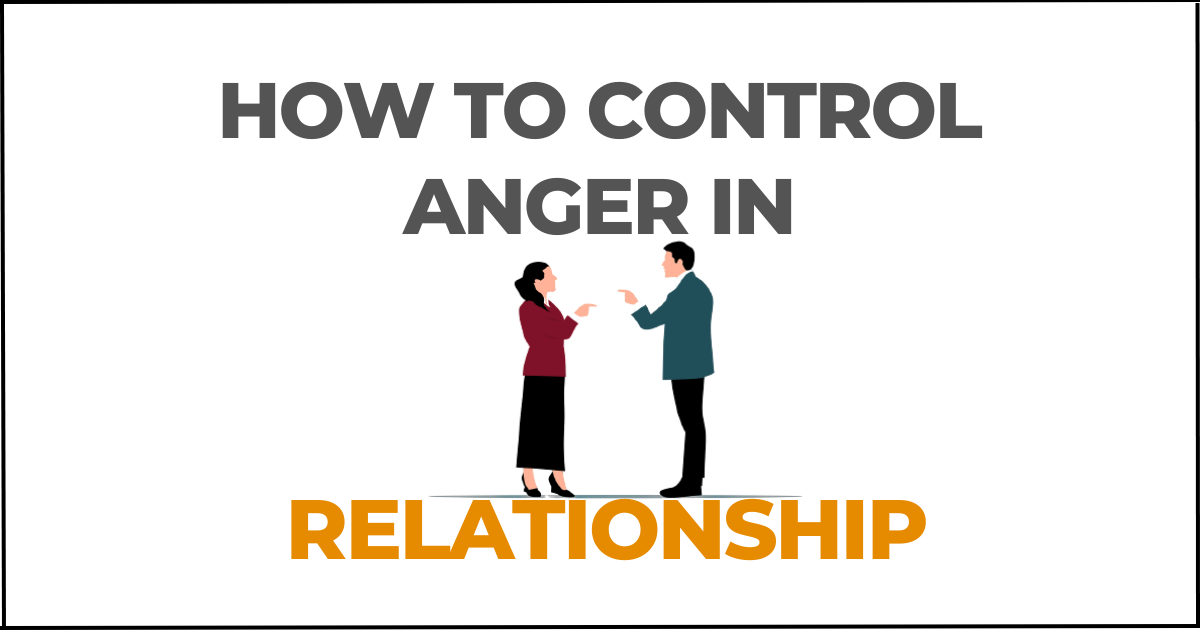Control Anger in Relationship: Maintaining a healthy relationship means learning how to control anger in constructive and helpful ways. It is never too late to discover new coping strategies that can help prevent arguments and strengthen your connection with your partner. Read on to find out five helpful tips on controlling anger in relationships.
5 Simple Strategies to Help You Control Anger in Relationships
Take a break
One of the most effective strategies for controlling anger in a relationship is to take a step back when tensions start to rise. Before starting any kind of talk, taking a break offers both partners the chance to make sure they are calm and controlled. This enables better communication while allowing each person to process their own thoughts and feelings. Before resuming any interactions, be sure you’re feeling in control of yourself again.
Practice Breathing and Relaxation Techniques
Taking deep breaths can help calm down and release anger in the moment. Breathing exercises and relaxation techniques can also be an effective tool for controlling anger. If you feel like you’re about to lose control, take deep breaths as count slowly down from 10. This stops you from reacting emotionally in the moment of the event and gives your more reasoned mind time to take over. Additionally, in stressful situations, relaxation methods like progressive muscle relaxation or visualization might assist lower stress levels.
Identify your Triggers
Knowing what causes you to become angry is the first step in controlling anger. Pay attention to your reactions when things don’t go your way and try to identify underlying triggers that set off your anger response. This could be feeling unheard, taken advantage of, or disrespected. By paying closer attention to your emotional triggers, you can more effectively manage them and keep your temper in check.
Talk Through Conflict in a Constructive Way
Instead of letting your anger simmer until it boils over, try to address problems with a calm, rational approach. For instance, offer suggestions to resolve a conflict in a respectful manner. Talk openly about any grievances and attempt to see the other person’s point of view. This helps keep the conversation on track and focused on finding common ground instead of escalating into an argument.
Know When to Seek Professional Help
If you’re having difficulty controlling your anger, it might be time to seek professional help. Anger management therapists can help you identify triggers and develop healthy strategies to manage your emotions. Therapy can also address any underlying issues that may be making it difficult to cope with strong emotions, such as stress or unresolved trauma, which can fuel angry outbursts.
Conclusion
Sometimes we hold onto a belief and feel that it is true. We get angry when someone says something unexpected, and the only explanation for this is that we are so firmly convinced of this belief that we are unable to change the circumstances. Therefore, make an effort to maintain your composure and disregard unimportant matters. When you are upset over a minor issue, don’t react to earlier grievances before responding.
Attempt to avoid worrying on insignificant concerns as well. Even if it’s untrue, thinking too much about something will eventually make you angry. Overthinking can be a reason for your anger, and controlling it is also a difficult task. You may want to read our article on “how to stop overthinking in a relationship” to learn how to control overthinking.
Remember, anger is a normal emotion and everyone experiences it at some point. However, it’s important to learn how to manage it effectively in order to maintain healthy relationships.

